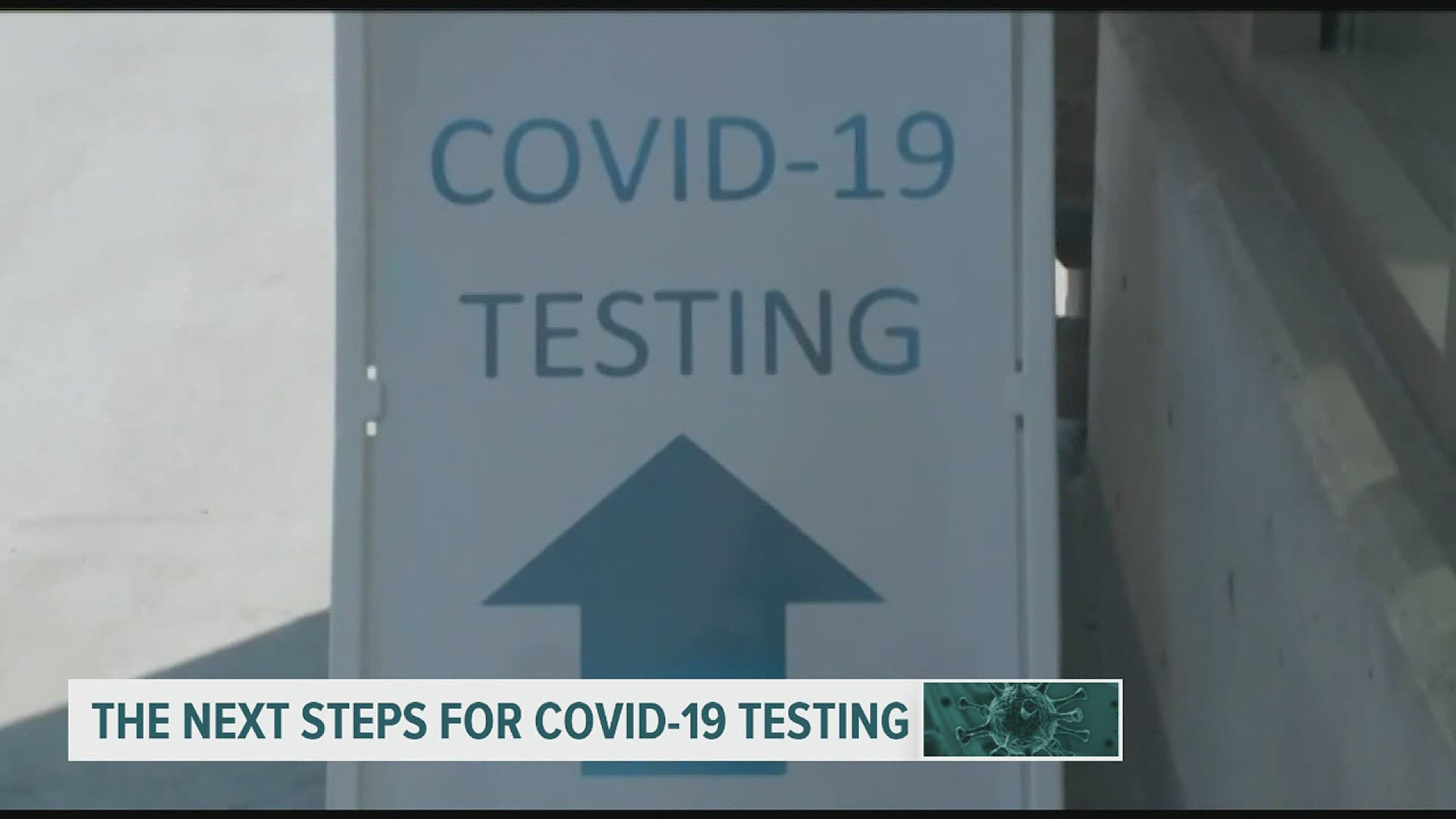LANCASTER COUNTY, Pa. — There may be a COVID-19 vaccine available for most people sometime in the new year, but health officials say the vaccine doesn't override the importance of testing for the virus. Specifically, they spoke about the need for increased surveillance testing.
"Surveillance testing of asymptomatic persons is critical strategy for preventing transmission of COVID-19," said Michael Huff, the state director of testing for the PA Department of Health.
What exactly is surveillance testing and what is its benefit?
Health officials say it's the periodic testing of asymptomatic people in a community. Surveillance testing helps them gauge the prevalence of a disease within that area.
"Surveillance testing is an important test to basically get as many tests out as you can so you can identify where disease is," explained Huff.
Huff says, basically, the more positive tests there are, the more the disease is out there.
"It [surveillance testing] becomes very important whenever a vaccine initiative starts so we can identify pockets which may still have disease."
Health officials say many universities have already been using surveillance testing. They have been testing students a couple times per week or month, to see if COVID-19 is present and figuring out how to mitigate the spread.
"This is just one of the testing strategies that will be considered for funding with the new COVID-19 relief emergency relief bill funds," Huff said during a Zoom call with reporters Tuesday.
To date, 7.4 million COVID-19 test results have been received across the commonwealth With millions more expected into 2021. The time it takes to receive a test result continues to vary depending on different circumstances, such as the type of test, backlog, etc.
"I can tell you that we try to achieve the 24-48 hour timeline for test results back," explained Huff.
That's the ideal time, but it's not always the norm.
"When you're dealing with a PCR, and you're dealing with lab where you have to send the specimen to the lab, they do an analysis and get the results back, it does take a longer period of time," he added.
It can take anywhere between 2 and 10 days, according to Huff. What is lacking in time, he says, is made up for in accuracy. He calls PCR tests the gold standard for COVID-19 testing. In comparison, rapid antigen tests have a quicker turnaround time, about 15 minutes, but they are not as good at detecting COVID-19.
According to the PA Department of Health, antigen tests look for pieces of proteins that make up the SARS-CoV-2 virus. You can view the rapid antigen test fact sheet here.
"I think you're going to see in the next six months rapid antigen tests that have a greater accuracy, greater ease of use, more reliable in terms of us being able to do massive testing and surveillance testing which we would like to do," said Huff.
He says masking paired with social distancing and surveillance testing are the greatest tools in combating the spread of a disease, such as COVID-19.
Here are the different types of tests, according to the PA Department of Health:
1. Diagnostic Tests which assess the presence of the virus at a given point in time. A negative means only that an individual was negative at the time of the test.
- Polymerase Chain Reaction (PCR) Tests and Nucleic Acid Amplification Testing: Detects the RNA genetic material in the COVID-19 virus and are often collected via nasal pharyngeal; mid turbinate; nasal, oral or throat swab; or saliva collection.
- Antigen Tests: Not currently widely utilized. Detects the presence of COVID-19 specific protein particles and is collected via a respiratory sample.
2. Non-Diagnostic Tests
- Serology (Antibody) Tests: Detect antibodies in the blood indicating possible prior exposure to COVID-19, which may develop 6-14 days after infection.
Health officials say no test is perfect, and there is a false negative rate and false positive rate that varies depending on the test and collection modality. Accuracy of antigen tests may be problematic due to poor sensitivity.
You can view the AMI public testing sites that are being held in five regions across PA or follow this link to see the closest testing site to you.



